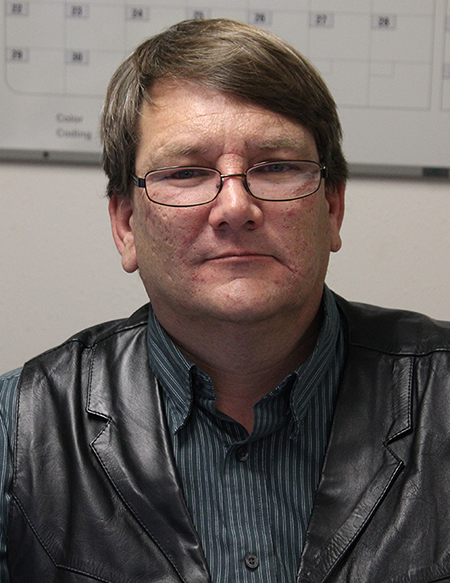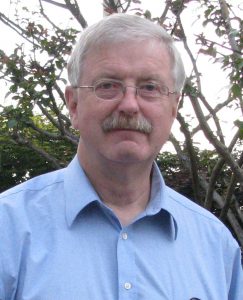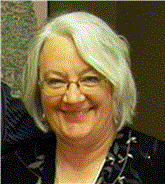Innovative two-year program, developed with support from mainstream universities, builds research skills and prepares graduates for a wide range of “people” professions.
By Paul Boyer
While all tribal colleges are looking for ways to expand their STEM degree programs, offerings in the social and behavioral sciences sometimes lag behind. According to Scott Morgan, director of institutional development at Sisseton Wahpeton College located on the Lake Traverse Reservation of South Dakota, this is a missed opportunity.
“On our reservation, social service-type jobs are one of the primary sectors where people are needed,” said Morgan. This is true even when compared to the technology and the hard sciences. “If you look across the board at STEM, there are more jobs that relate to behavioral sciences than any other area.”
In response, Sisseton Wahpeton College is now offering a new two-year behavioral sciences degree. Developed with support from the National Science Foundation and in partnership with North Dakota State University and South Dakota State University, it is one of the first behavioral science degrees offered by a tribally controlled college and it is the first developed with support from the NSF.
The behavioral sciences encompass psychology, as well as “any of the social sciences,” according to Gary Goreham, a professor of sociology at South Dakota State University who participated in development of the new program. Those who graduate from a two-year behavioral sciences program are prepared for a wide range of professions: “Anything dealing with people or requiring people skills,” he said, such as counseling or corrections. Those who choose to pursue four-year or graduate degrees can return home as program administrators, licensed social workers, or tribal college faculty, among other career options.
Interest in the new program is already strong. Morgan said that more than a dozen of the college’s approximately 200 students have already declared behavioral sciences as their major. This level of enrollment, if maintained, is close to the number needed to make the program sustainable.
Building Partnerships
The development of new degree programs is a significant undertaking for any college—especially for small and underfunded institutions. With only one full time faculty member in the social sciences, Sisseton Wahpeton College turned to its mainstream university partners for support as the program took shape.
Sisseton Wahpeton College was particularly grateful for support provided by faculty from both NDSU and SDSU in development of course content. Gary Goreham from North Dakota State University and Mary Emery, department head and professor of Sociology and Rural Studies at South Dakota State University, along with Weiwei Zhang, the state demographer at SDSU, worked with the college to create a set of learning modules, focusing on skills related to social science research.
Significantly, many of these skills are taught three times: First explored in introductory level classes, they are then reinforced in both 200 level and advanced courses. Topics (with links to completed modules) include:
• Conducting Interviews: Interviewing L1; Interviewing L2; Interviewing L3
• Developing Questionnaires: Questionnaires
• Completing Literature Reviews: Literature Review L1; Literature Review L2; Literature Review L3
• Avoiding Plagiarism: Plagiarism and Research Ethics L1; Plagiarism and Research Ethics L2; Plagiarism and Research Ethics L3
These modules “create a standard for our program,” Morgan said. They are also an efficient way to introduce and reinforce core concepts into the curriculum, since they can be integrated into existing classes.
Building on skills introduced in the learning modules, the college is also adding a capstone research methods class, which was developed in consultation with NDSU and will be team taught by Gary Goreham and Sisseton Wahpeton College faculty member Vince Owen. The class’s first research project will be a survey of Sisseton Wahpeton students, investigating attitudes toward their academic experience.
Morgan noted that many of the skills taught in the modules and capstone course are not conventionally introduced in lower division classes. This means that students who continue their studies at a mainstream college or university will have a head start when they take upper division writing and research methods courses. This makes the transition “as smooth as possible,” Morgan said, and lessens the “shock” of taking more demanding 300 and 400 level classes.
Early in the program’s development, Sisseton Wahpeton College staff recognized that faculty recruitment could also be a barrier. Like many tribal colleges, low salaries, lack of tenure, and geographic isolation puts tribal colleges at a competitive disadvantage, especially in the STEM disciplines. Ironically, it can be especially hard to hire Native faculty, since tribal members with advanced degrees are often actively recruited by mainstream institutions, said Mary Emery of South Dakota State University.
One strategy is to hire graduate students as adjunct instructors and, in collaboration with SDSU, the perfect candidate was quickly identified. Frank Arpan, a doctoral candidate in the department of Sociology and Rural Studies, is a member of the Yankton Tribe with family ties to the Lake Traverse Reservation. Through his graduate student fellowship, Arpan spent a semester teaching a Social Problems class at Sisseton Wahpeton College, gaining familiarity with the mission and work of tribal colleges.
A Foundation for the Future
With the new behavioral sciences degree program nearing completion, Sisseton Wahpeton College is looking for more ways to strengthen its partnerships with NDSU and SDSU. Morgan talked about tapping the expertise of both university systems for research projects related to educational outcomes. Goreham, too, would like to build relationships that lead to research projects for NDSU students. Affiliation with the tribal must be sensitive to culture and community concerns, he emphasized. “We’re dealing with sovereign nations.” But he believes the university can help conduct research that is useful to the tribe and its needs.
Meanwhile, Mary Emery is also looking for ways to strengthen collaboration by developing more and more effective opportunities for online learning. She noted that many tribal college students cannot easily leave their homes to earn a four-year degree. “They have families; they don’t want to move to Brookings,” she said. Yet enrollment and completion rates in online degree programs are typically low. Partnerships with tribal colleges can, in future, help the university provide resources and support to students living on or around reservations.
Goreham would also like to study the outcomes of the behavioral sciences degree program. “I’m looking at two things,” he said. “One: Are faculty using the modules and, two, are students using and benefitting from these materials?”
Doing something good for a community, studying the results, and then trying to do it even better: That’s what tribal colleges—and the behavioral sciences—are all about.
Paul Boyer is editor of Native Science Report.




